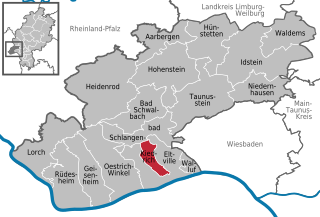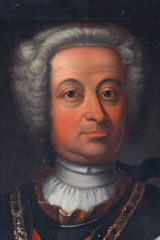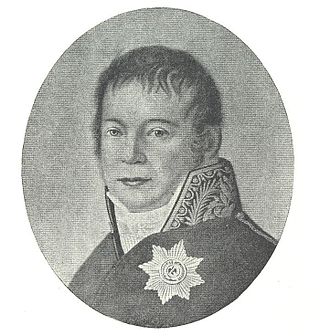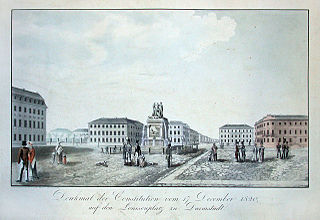Related Research Articles
Main-Taunus is a Kreis (district) in the middle of Hessen, Germany and is part of the Frankfurt/Rhine-Main Metropolitan Region as well as the Frankfurt urban area. Neighboring districts are Hochtaunuskreis, district-free Frankfurt, Groß-Gerau, district-free Wiesbaden, Rheingau-Taunus. It is the second most densely populated rural district in Germany.
Rheingau-Taunus is a Kreis (district) in the west of Hesse, Germany. Rheingau-Taunus-Kreis is part of the Darmstadt region; its main administrative seat is Bad Schwalbach. Outposted sections of the local administration are located in Idstein and Rüdesheim am Rhein.
Limburg-Weilburg is a Kreis (district) in the west of Hesse, Germany. Neighboring districts are Lahn-Dill, Hochtaunuskreis, Rheingau-Taunus, Rhein-Lahn, Westerwaldkreis.

Eltville am Rhein is a town in the Rheingau-Taunus-Kreis in the Regierungsbezirk of Darmstadt in Hesse, Germany. It lies on the German Timber-Frame Road.

Kiedrich is a municipality in the Rheingau-Taunus-Kreis in the Regierungsbezirk of Darmstadt in Hesse, Germany.

Louis I, nicknamed the Peaceful, was Landgrave of Hesse from 1413 to 1458. Following Louis' death, his sons, Henry III and Louis II, divided Hesse into Upper and Lower sections.

Princess Marianne of the Netherlands, Princess of Orange-Nassau was the youngest child of King William I of the Netherlands and Princess Wilhelmine of Prussia.

William I was Landgrave of Hesse-Rotenburg from 1693 until his death.

Georg Adolf Carl von Opel, known as Georg Adolf Carl Opel before being ennobled in 1918, was a bank specialist and industrialist of the Opel family and one of the founders of the German automobile manufacturer Opel.

Auersburg Castle is a ruined hill castle in parish of Hilders in the county of Fulda in Hesse, Germany. The site is used today as a shelter and viewing platform.

Ebersburg Castle is a ruined hill castle in Ebersberg in the parish of Ebersburg in the county of Fulda in East Hesse, Germany. It is the symbol of Ebersberg as well as the origin of its name.

Haselstein Castle is a ruined hill castle near the village of Haselstein in Nüsttal in the county of Fulda in Hesse, Germany. It lies next to the village on a steep basalt cone at a height of 434 m above sea level (NN). The rock was first mentioned in 780/781 as the Haselahastein.

Ernst Marschall von Bieberstein served as Chief Minister (Staatsminister) of the Duchy of Nassau between 1806 and 1834. Between 1806 he was one of two chief ministers of Nassau, but after the resignation of Hans Christoph Ernst von Gagern, Marschall von Bieberstein became in effect the sole leading politician in Nassau in 1809. During his early years he pursued a liberal course, but as conservatism returned to favour after the fall of Napoleon, his approach became strikingly more "restorationist".

Jagdschloss Kranichstein is a palace in Kranichstein, now part of Darmstadt, Hesse, Germany. It was built north of Darmstadt from 1578 as a Jagdschloss, a hunting lodge for George I, Landgrave of Hesse-Darmstadt. It served also as a summer residence. In 1917, it became a museum of hunting. From 1946, it was the first location of the Darmstädter Ferienkurse.

Buchenau is a district of the market town Eiterfeld in the district of Fulda and has around 350 inhabitants.

Georg August Lerch was a German architect and politician; a member of the Second Chamber of the Land Estates of the Grand Duchy of Hesse.

Friedrich "Fritz" Bindewald was a German painter associated with the Düsseldorfer Malerschule, and a member of the Reichstag.
Ehrenbach is a village, first mentioned in 1371, that became in 1971 part of Idstein, Hesse, Germany.

Rauenthal is a town in the Rheingau, in the Rheingau-Taunus-Kreis, Hesse, Germany. It became part of Eltville in 1977, then officially name Rauenthal (Rheingau). It is known for growing wine.
References
- 1 2 3 4 5 6 "Herber, Johann Georg". Hessische Biografie. Hessisches Landesamt für geschichtliche Landeskunde (Landesgeschichtliches Informationssystem Hessen / LAGIS), Marburg. 27 July 2021. Retrieved 9 December 2021.
- 1 2 3 4 5 6 7 Wolf-Heiner Struck (1969). "Herber, Johann Georg: Beamter und Politiker, * 30.1.1763 Winkel (Rheingau), † 11.3.1833 Eltville". Neue Deutsche Biographie . Bayerische Staatsbibliothek, München. p. 576. Retrieved 9 December 2021.
- 1 2 "Herber, Johann Georg". Hessische Parlamentarismusgeschichte Online - Abgeordnete. Hessisches Landesamt für geschichtliche Landeskunde. 27 July 2021. Retrieved 10 December 2021.
- ↑ Dagmar Söder. "Klosterlandschaft Eberbach" (PDF). Das Kloster als Wirtschaftsbetrieb und seine Spuren in der Rheingauer Landschaft. Landesamt für Denkmalpflege Hessen. Retrieved 10 December 2021.
- ↑ Dr. Rolf Faber. "Auseinandersetzung um die Domänen". Die Bedeutung des Herzogtums Nassau (1806-1866) für die Region des Rheingau-Taunus-Kreises. The second of the three columns of the page is of particular relevance. Kreisausschuß des Rheingau-Taunus-Kreises (Jahrbuch des Rheingau-Taunus-Kreises 2001) & Holger Christ (Nassau-Info), Idstein/Taunus. Retrieved 10 December 2021.
- ↑ "Snell, Christian Wilhelm". Hessische Biografie. Hessisches Landesamt für geschichtliche Landeskunde (Landesgeschichtliches Informationssystem Hessen / LAGIS), Marburg. 8 September 2021. Retrieved 10 December 2021.
- ↑ "Eltville am Rhein". Unterwegs im Herzogtum Nassau. Peter Eisenburger, Hölzenhausen. Retrieved 10 December 2021.
- 1 2 Manfred Miller (15 November 2020). "Der Nassauische Domänenstreit". Die Münzen und Medaillen des Hauses Nassau. Books on Demand. pp. 17–19. ISBN 9783752648850 . Retrieved 11 December 2021.
- ↑ "Kunz, Johann Nikolaus". Hessische Biografie. Hessisches Landesamt für geschichtliche Landeskunde (Landesgeschichtliches Informationssystem Hessen / LAGIS), Marburg. 15 April 2021. Retrieved 9 December 2021.
- ↑ "Hergenhahn, Jacob Ludwig Philipp August Franz". Hessische Biografie. Hessisches Landesamt für geschichtliche Landeskunde (Landesgeschichtliches Informationssystem Hessen / LAGIS), Marburg. 27 July 2021. Retrieved 20 October 2021.
- ↑ Marion Halft (photographer). "Grabmal Johann Georg Herber Friedhof Eltville am Rhein". Herber war ein nassauischer Jurist und Politiker. Von 1818 bis 1832 war er Mitglied des Nassauischen Landtags und dort langjähriger Präsident der zweiten Kammer. Retrieved 11 December 2021.